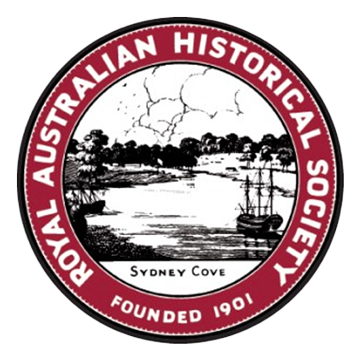‘History is central to reconciliation’: RAHS launches its inaugural Reconciliation Action Plan
Acknowledging Australia’s difficult past is a key step toward reconciliation between non-Aboriginal and Aboriginal peoples. By revisiting our own long history, and by promoting truth-telling in the histories that we write today, the Royal Australian Historical Society (RAHS) is proud to actively promote this journey via its inaugural Reconciliation Action Plan (RAP).
Today the Society formally launches its Reflect RAP, developed with guidance and endorsement from Reconciliation Australia. Launched on Gadigal land, this plan was shaped by a working party that includes Uncle Shayne Williams, a senior Dharawal man with strong links to the Sydney area, and Dr Michael Bennett, who has helped Aboriginal families and communities connect with their histories for over two decades. RAHS Councillors in the RAP working party also include our President, Dr Iain Stuart, as well as Adjunct Associate Professor Carol Liston, Graham Shirley, Craig McPherson, Dr Peter Hobbins and General Manager, Suzanne Holohan.
The Society’s RAP has been endorsed by the RAHS Council as a guiding document for the coming years. As an action plan, it is focused on real outcomes that include:
- actively participating in National Reconciliation Week and NAIDOC Week events
- consulting with Aboriginal and/or Torres Strait Islander peoples regarding the Society’s cultural awareness protocols
- initiating a grant-funded internship project to review the digitised journals of the RAHS to identify reminiscences and accounts that mention Aboriginal and/or Torres Strait Islander peoples and places
- launching a timeline of representations of Aboriginal and/or Torres Strait Islander peoples in Australian screen and audio materials
- developing a business case for procurement from Aboriginal and/or Torres Strait Islander owned businesses.
The Reflect RAP is the first step in the four-stage RAP process outlined by Reconciliation Australia. Operating from January 2023 to July 2024, it outlines the Society’s initial steps in building understanding, connections, initiatives and opportunities to fully acknowledge the deep and rich pasts of Aboriginal and Torres Strait Islander peoples. A fundamental aspect is making contact and listening to Aboriginal and Torres Strait Islander peoples in the vicinity of the Society’s headquarters at History House in the Sydney CBD, the lands and waters of the Gadigal people of the Eora nation.
‘History is central to reconciliation’, noted the Chair of the RAHS RAP Working Group, Dr Peter Hobbins. ‘By starting this journey ourselves, in partnership with Aboriginal and Torres Strait Islander peoples, we hope to encourage other historical societies to also commit to the reconciliation process’.
‘It is a great step for the RAHS and an example of how all organisations can make a contribution to healing and learning in the Aboriginal cultural sphere,’ said working party member, Craig McPherson.
For more information, download a copy of the RAHS Reflect RAP.
For guidelines for commencing the reconciliation journey and creating a Reconciliation Action Plan, visit Reconciliation Australia and liaise with their helpful advisors: https://www.reconciliation.org.au/reconciliation-action-plans/
For more information and events during National Reconciliation Week, see: https://www.reconciliation.org.au/our-work/national-reconciliation-week/
Published online: 1 June 2023
